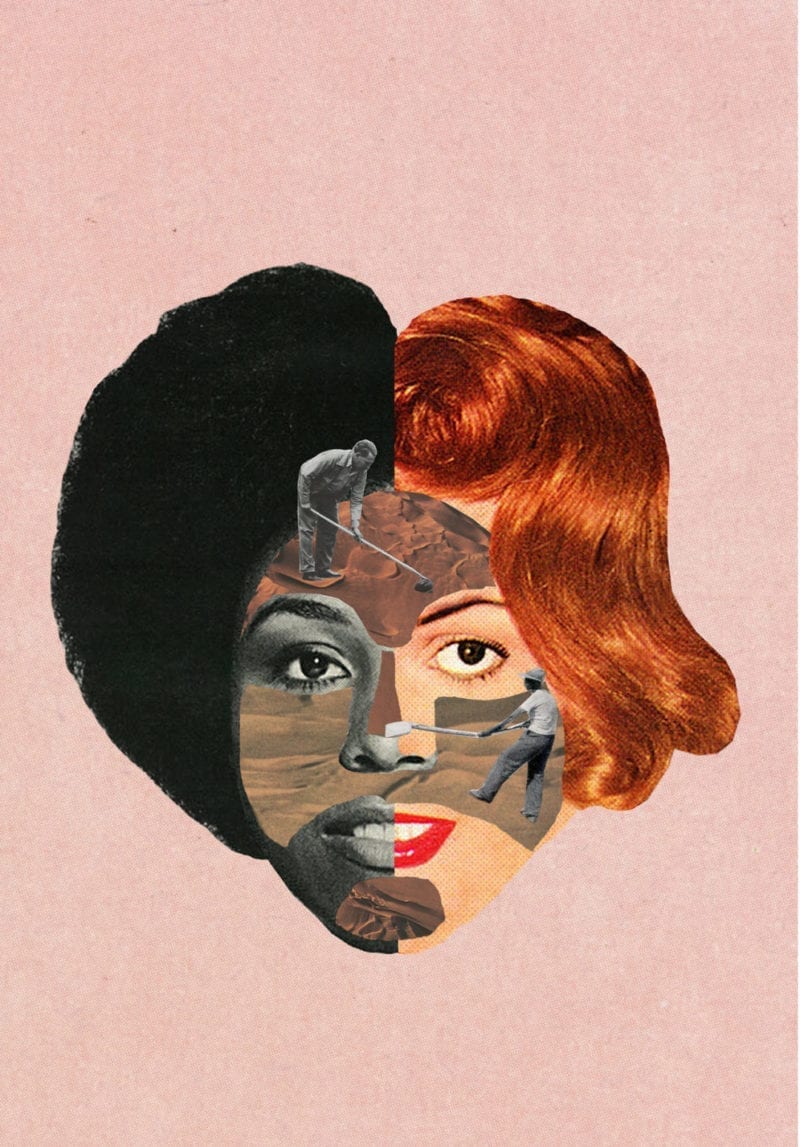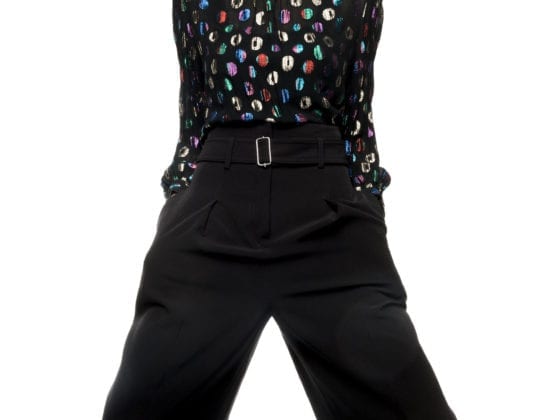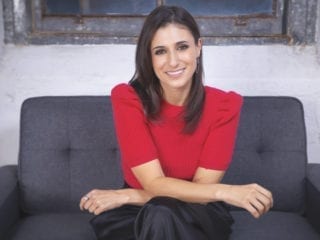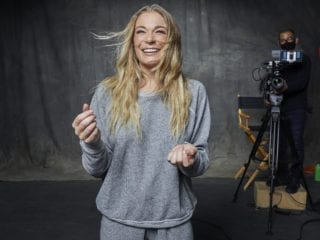A Roundtable With Darling offers real talk from a few of our writers. This Q&A series will take an issue and share the writers’ personal experience and lessons learned. The hope is to create a space of connection and transparency.
The past few weeks have felt like a lifetime. With the news of the murders of George Floyd and Breonna Taylor gaining global attention, protests broke out across the country and around the world. From American cities including Minneapolis, Houston (Floyd’s hometown), Louisville, Indianapolis, Detroit, Seattle, Los Angeles and New York City, to abroad, hundreds of thousands of people are standing in solidarity. In London, Berlin, Paris, Copenhagen, Mexico City, Peth, Vancouver, Toronto, Dublin and Rio de Janeiro, peaceful protests took place (with many protesters marching to their U.S. embassies.)
We, at Darling, want to be a part of the change. Once the protests stop and a new topic is trending, we don’t want to stop holding space for conversation and dialogue about race and the systematic racism disproportionately affecting black communities. We want to be a part of real change and so does our Darling community. One resource we have to offer is our platform for writers to share their stories, and we will continue to steward that platform to elevate writers who are women of color.
Today’s Roundtable With Darling is focused on race in America. We hope that this conversation will spur you to conversation in your private life and to action. George Floyd’s 6-year-old daughter, Gianna, said in a now viral video that, “Daddy changed the world.” Let’s do the work so Gianna’s words will ring true.
What is your opinion about the current state of race in America and equality?
“Racism has always been prevalent in America, but the only difference today is the freedom with which people openly act on their racist beliefs, which is in direct relation with the leader of this nation. His constant undertone of racism, sexism and bigotry creates a safe space for closeted racists to come out for fresh air. As a person of color, equality has never existed for me in America. America was built on the backs of people who look like me. It was built by us, but it was never for us.” — Ashlee Cheatham, Long Island, New York
“America is hurting, and it’s becoming clear that ‘the land of the free’ isn’t free for everyone. Diverse communities, particularly black communities, do not have the same equality to breathe, jog, bird watch, play outside or be human without being racially profiled—or worse. We tend to let the idea of ‘progress’ lead us to be ignorant of what’s happening, and has been happening, in our society for a long time.” — Sonya Matejko, Tampa, Florida
“Even as a foreign person of color, I feel the tension of race that’s so taut and fills every political, social, economic and cultural gap in this country.” — Judy Lee, Orange County, California
“We need healing. There is a lot of injustice still happening, a lot of brokenness and a lot of pain that needs healthy reconciliation.” — Victoria Bardega Sheppard, Lakeland, Florida
“The lack of racial equality in America is complex. Racism—systematic oppression—has patterned everything from healthcare outcomes to neighborhood surveillance, mass incarceration to voter suppression in deliberately concealed or coded ways, making violence against black and brown bodies even more insidious. Most Americans were taught in history class that racial equality has only improved since the era of Jim Crow and that the United States is now a “post-racial society,” but this is inaccurate history rooted in racism and erasure. Racial violence and inequality have not been eradicated. They have changed form. We need radical change, and as Angela Davis reminds us, ‘Radical simply means grasping things at the root.’” — Sarah James, Los Angeles, California
Do you think race is a difficult topic to talk about? Why or why not?
“For people of color who face racism on a daily basis and who fear for the safety of our family members (especially our fathers, sons, brothers and husbands) dialogue about race is necessary. At times, it’s a conversation that could be a matter of life or death. To not have to talk about race is a privilege that people of color don’t have.” — Ashlee Cheatham
“I’ve often thought that, because I am a white female, I don’t have a right or place to enter the conversation. However, I’m now seeing that silence and passivity can be equally as destructive as the cruelty we’re seeing. To speak up, however uncomfortable it may feel, is to be an ally. True allies will risk putting their foot in their mouths to raise awareness —both for themselves and for their community.” — Sonya Matejko
“It’s a difficult topic to talk about. It’s certainly not an easy conversation to bring up. Even with all the talk of racial equality, there’s often an underlying sense that, ‘At the end of the day, we want our culture to be defined as American, not by our skin color.’ There is an oddly clashing sense of both unity and separatism in talks of race and culture in America.” — Judy Lee
“I would first ask, ‘Difficult for whom?’ Talking about race may be difficult for some Americans because it is uncomfortable, but the comparison is this: a privileged person’s discomfort versus the literal safety and survival of BIPOC. There is a huge disparity between those stakes. Avoiding hard conversations and difficult emotions emboldens violence and trauma through silence and complicity.” — Sarah James
What has been your experience with race, racial bias and racial stereotypes?
“Have you ever been invited to a party and the moment you walk in, you instantly don’t feel welcomed? You don’t feel like you belong. As each moment passes, your level of discomfort grows until it is the elephant in the room. That is what my experience with racism and racial bias has been. I’m invited to rooms out of obligation, only to feel tolerated by others because that is the expectation.” — Ashlee Cheatham
“I’ve never had the experience of being profiled or marginalized because of my race. What I’ve come to realize in answering these questions is that I’ve also never asked someone who doesn’t look like me what their experience has been or entered a community that didn’t look like me. I want to be better. I want to raise my awareness.” — Sonya Matejko
“I grew up in a community that was quietly entrenched in stereotypes. Racial division became much clearer when I came to the United States. Even in a community meant to be inclusive, diverse and loving, I quickly learned that race in America is one of its most prominent yet least openly discussed issues.” — Judy Lee
“I’ll never forget an experience I had when I was 15 years old with racism and racial bias. My boyfriend at the time was bringing me to meet some of his family members. We had just eaten lunch with my grandmother, who has beautiful, dark skin. Before heading to my boyfriend’s family’s house, he asked if we could leave her behind. He went on to share how his family is racist. As a proud, Hispanic American woman and someone who adored her grandmother, this broke my heart. I felt incredibly small and almost less-than for my heritage. I stood up and said, ‘Any place where my grandmother or any person of color isn’t welcomed is where I’m not welcomed. Either she comes or we don’t go at all.’ She ended up coming with us against his wishes. I’m thankful for what that experience taught me and that things never worked out between me and that guy.” — Victoria Bardega Sheppard
“I am a biracial, Asian American woman of color who looks ‘ethnically ambiguous.’ My entire life, I have been asked questions like, “What are you?” “Where did you come from, no I mean originally?” and “Where were you adopted from?” My race has been fetishized in relationships. My father, a first-generation immigrant whose skin is the color of coffee beans, has been repeatedly discriminated against. I have witnessed how racism and dehumanization are also stitched in people’s assumptions and biases about who belongs where and about who belongs together.” — Sarah James
How can we, as a nation, collectively come together to bridge the gaps of racism and classism in America?
“Honestly, I don’t know the answer. The hatred that exists against people of color is something that is taught. I believe until the narrative that people of color are a threat or seen as less than is no longer passed along from generation to generation, it will be impossible to begin to even build that bridge.” — Ashlee Cheatham
“Phrases like, ‘I don’t see color’ are actually hurting our society. I know that as human beings one of our deepest needs is to be seen and heard. We should see color because, if we do, we will then be forced to see the bias and the stereotypes that come with it. Maybe then we’ll be moved to help stop both. For us to come together as a nation, we need to stop assuming and start listening.” — Sonya Matejko
“Learn, listen, lament. It is what my pastor suggested as a responsibility of fellow human citizens to approach justice with humility. I think these are things we can all do no matter what our positions or level of education.” — Judy Lee
“We need to start with valuing human life. People deserve more than just a social media post from us to acknowledge their pain and to honor them. They deserve change. The best way to evoke change is by having authentic conversations about what’s happening in our world. ” — Victoria Bardega Sheppard
“We cannot, at the state and national level, underestimate the power of the ballot. Voting for candidates who understand the urgency of anti-racism and the connection between racial and socioeconomic oppression is crucial to creating more substantive change. Further, we must follow the leadership of black, brown and indigenous people. Their wisdom should guide our actions and our advocacy.” — Sarah James
What is the value in having friends and community of different ethnicities and backgrounds?
“There is beauty in culture. I believe in the beauty of being able to learn from others. I have friends from all cultures and all walks of life, and it’s something I am grateful to be able to experience. The offerings they bring from their culture and experience is something I consider an added value to my life.” — Ashlee Cheatham
“The greatest value in surrounding yourself with people of different backgrounds is it gives you the opportunity to cultivate more understanding and more empathy. By hearing perspectives from people or communities who’ve had completely different experiences than our own, we can not only expand our own worldview but help expand the world view of others.” — Sonya Matejko
“It’s been my greatest joy and privilege to engage in cultures outside of my own through my beloved friends. I’ve laughed and then cried through a three-hour Bollywood movie while eating a South African Indian friend’s homemade biryani. I’ve been housed by the most wonderful Persian Canadian family and heard their stories of fleeing the Iranian Revolution as a refugee. I’ve explored the heart of Bangkok with my expat German-Indonesian best friend from middle school.” — Judy Lee
“The value is knowledge. When we surround ourselves with all different kinds of people, we are giving ourselves the opportunity to flourish and grow. We were created differently for a reason and a purpose!” — Victoria Bardega Sheppard
“Having friends and family members from different racial, socioeconomic and religious backgrounds, I have learned that diversity in community makes all of our lives richer. It is who and how we are meant to be together as a society. We grow through reading, but we also grow through relationship. Through friendship and community, we can learn to be accountable to each other, to understand each other’s pain and work together to address inequality, motivated by love and compassion.” — Sarah James
What is one practical thing people who want to join in the fight against prejudice and racism can do?
“Be aware of their privilege if they are in possession of it. Use their voice to speak out against racism even if it doesn’t affect them personally. Be more than a friend, be an ally.” — Ashlee Cheatham
“Donating to a cause that’s fighting against prejudice and racism is a great thing for people to do; however, I would recommend that the best thing one can do is to examine their own privilege. We can’t fight racism by just throwing $20 at the problem. We have to unpack it, understand it, speak up about it and heal our way through it.” — Sonya Matejko
“Listen to stories from others. Learn how they’ve experienced racism and try to stand in their shoes. The more stories we hear, the more disarmed we’ll be to the automatic defenses and fears against the unknown. Listen first and don’t try to comment. Ask lots of questions. Share your own stories, too.” — Judy Lee
“Be the change by leading by example. Love people fearlessly, stand for justice in all situations and expose prejudice and racism when you see it.” — Victoria Bardega Sheppard
“The fight against racism begins with re-education. Read as much as you can about the history of race in the United States from black creators and scholars. Read a richer history of the American Civil Rights Movement and learn about leaders like Fannie Lou Hamer. Read poets like Gwendolyn Brooks, Audre Lorde and Claudia Rankine. Read contemporary works by scholars like Michelle Alexander, Rev. Dr. William J. Barber II, Rachel E. Cargle, Ta-Nehisi Coates, Dr. Ibram X. Kendi, Rev. Dr. Jacqui Lewis and Bryan Stevenson. Then, learn about womanism. As Alice Walker said, ‘Womanist is to feminist as purple is to lavender.'” — Sarah James
Finally, do you have a favorite quote or saying related to equality that you can share with us to bring us some hope?
“‘No matter how big a nation is, it is no stronger than its weakest people. As long as you keep a person down, some part of you has to be down there to hold him down, so it means you cannot soar as you might otherwise.’ — Marian Anderson” — Ashlee Cheatham
“If there’s anyone out there who can give us hope, it’s Michelle Obama. In her book, Becoming, she wrote, ‘When someone is cruel or acts like a bully, you don’t stoop to their level. No, our motto is, when they go low, we go high.'” — Sonya Matejko
“‘Do not be overcome by evil, but overcome evil with good.’ Romans 12:21. It’s not a verse directly about equality, but it offers a way of living in the midst of injustice.” — Judy Lee
“’No future without forgiveness.’ — Archbishop Desmond Tutu” — Victoria Bardega Sheppard
“‘My humanity is bound up in yours, for we can only be human together.’ — Archbishop Desmond Tutu” — Sarah James
Are you having discussions about racism and racial bias? How will you choose to actively engage in this discussion?
Image via Richard Vergez, Darling Issue No. 19











